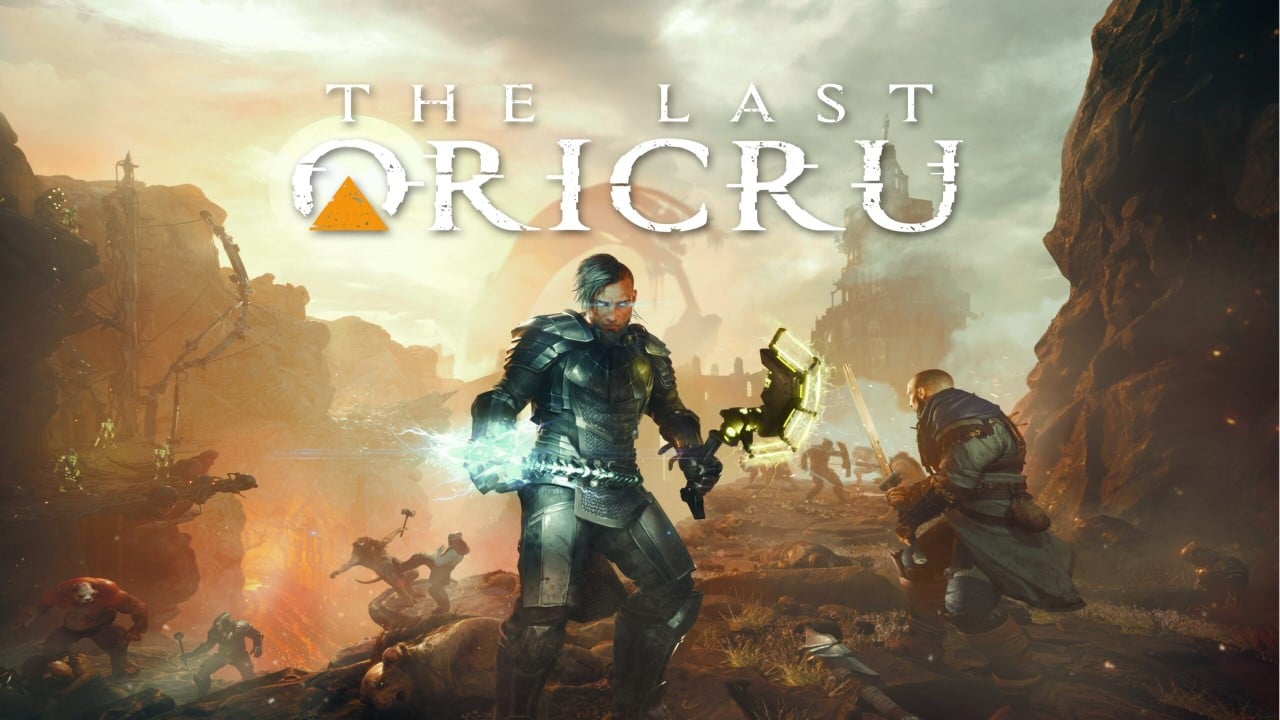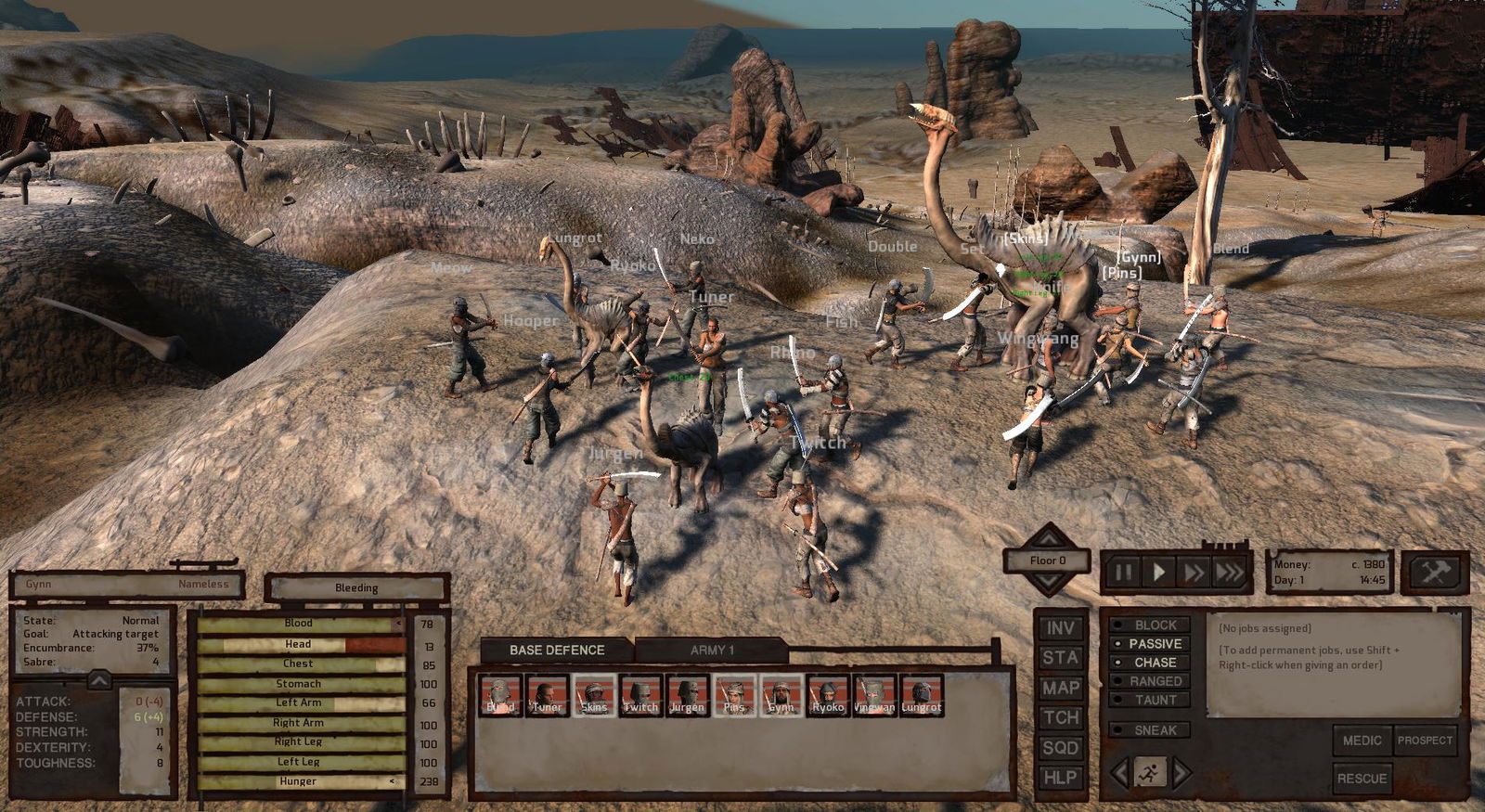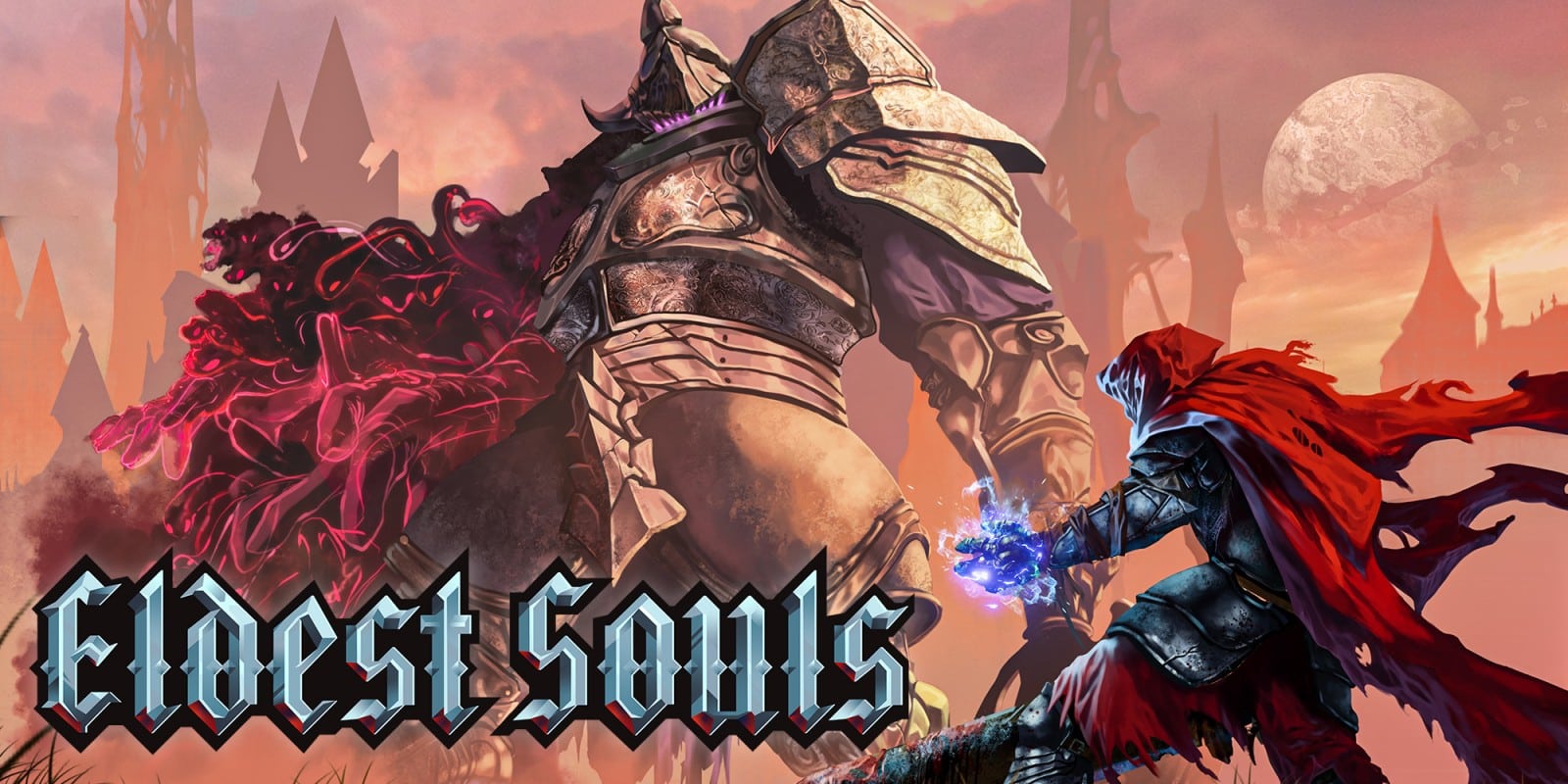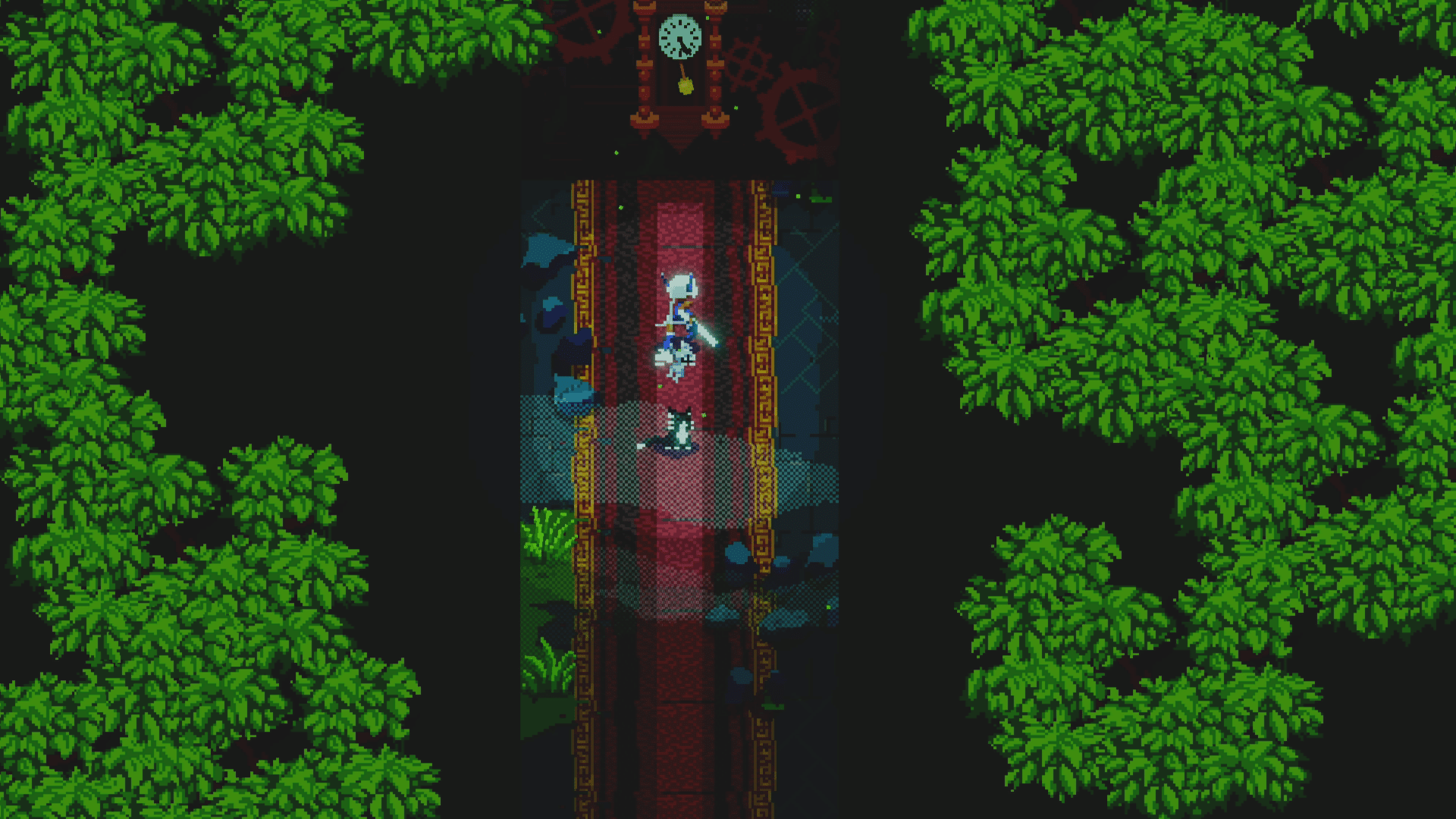With the ever-inflating budgets and graphical fidelity of AAA games these days, there is a certain charm that can sometimes be found in more technically and financially-limited efforts from smaller developers. GoldKnights’ first premium title, The Last Oricru (previously titled LostHero), is a sci-fi fantasy RPG that carries the “Eurojank” vibe found in other titles, such as Risen and ELEX, and it aims to provide deep narrative choices in a Souls-like framework. Although “Eurojank” may be an endearing term for some, there is only so much jank one can endure before the rougher edges become crystal clear, no longer loosely covered by the veil of charm. The Last Oricru finds itself in this particular situation, overburdened by its lofty goals and unrefined in its execution.
The Last Oricru takes place in an admittedly engaging setting, with various strikingly designed alien species surrounding our invincible human protagonist, Silver. That’s right; Silver cannot die. Well, more accurately, he cannot stay dead. The unusual tech wrapped around his waist resurrects him in the event of his death. As if being a human, or Ascended One, wasn’t enough of a rarity in these lands, Silver’s immortality furthers his unique presence. The introductory moments familiarize the player with the foundation of this mystery, dropping information to be expanded on later as Silver meets and greets the different not-so-human inhabitants of the exotic environment in which he has suddenly found himself.
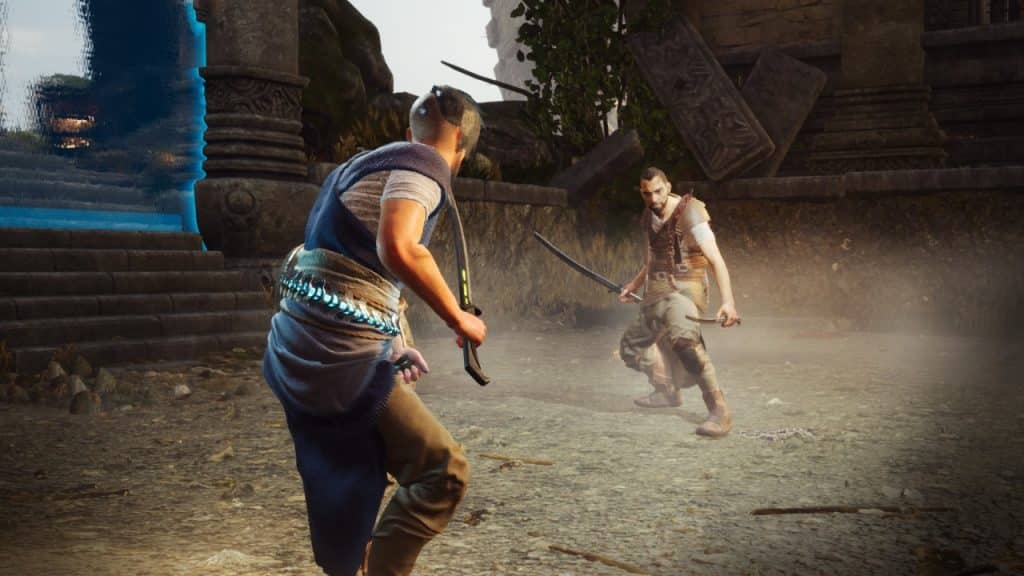
Viva la Ratvolución!
The bipedal rat people, specifically, were an early introduction that caught my attention as I sympathized with their enslaved plight. What began as an innocent gesture of offering medical supplies to the Ratkin running the armory later opened up a new ally option. Without spoiling too much, a series of events quickly unfolded during the intro and my armory-stationed rat buddy acknowledged my earlier kindness to his species and offered me a high-ranking role within their rodent army. My Silver quickly turned on his recently-acquainted monk mentors, which are of the (self-proclaimed) superior Naboru race, slaughtering them in the name of Ratkin freedom. Had I not shown compassion for the poor treatment of the Ratkins, it’s possible I would have missed this option entirely and gone on to train with the rigid Naboru people. And I might have missed the best worst piece of dialogue ever written wherein Silver states his middle name is “Sailor” and his first name is “Notafukin” when asked to pilot a boat for the continuation of the Ratvolution.
The branching storyline is the main draw here. Silver’s actions can both immediately impact a situation and create a different outcome several hours later. While the design is fairly well embedded, it nearly stands alone as one of the game’s scarce redeeming factors. Virtually every other area of the game fails to impress, even when entering with the “Eurojank” mindset. The Last Oricru wants to call itself a Souls-like, but the experience is a hollow echo of the genre. Attacks may be mapped similarly to the triggers with dodge and parry options available, all limited by the ever-present stamina bar, but the entirety of the fighting mechanics lack fluidity and weight. To put it simply, combat is serviceable but far from engaging or impressive.
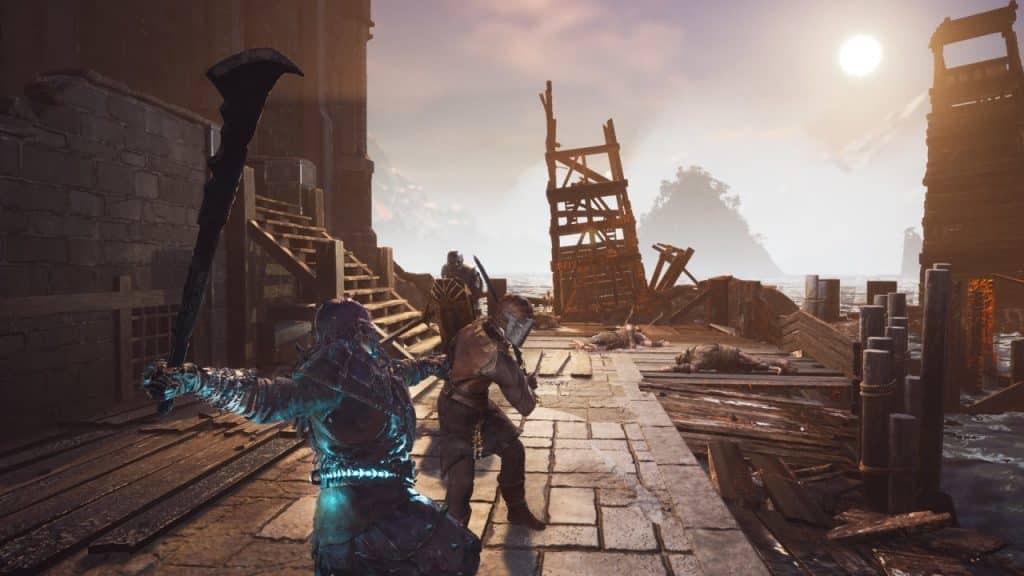
Functional? Yes. Fun? No.
In fact, that quip basically applies to the game as a whole. The voice acting is … present … but hearing Silver speak is an insufferable slog. His half-joking demeanor and poor voice over make the lead extremely unlikable. At least, that’s my opinion (which makes sense that you would find such a thought in my review). The lackluster voice acting and dialogue is not confined to our protagonist either. It is a fairly widespread issue, although some characters fare infinitely better than others. The better of the bunch somehow slightly resemble what you might recall from the first Fable game (but still worse). Looking at the graphics you will find that it is, again, serviceable. But the result is still a title that looks like it was pulled from the PlayStation 3 and Xbox 360 era.
Now, the items I just outlined are certain to carry different weights depending on the player. Not everyone is turned off by outdated graphics, clunky gameplay and so on. Like I said earlier, there can be a charm to these aspects that draw in a certain crowd. But there’s one issue with The Last Oricru that cannot be justified. Every time the game was launched on PC, it disabled my Ethernet adapter, causing a loss of internet access until I either the Troubleshooter was able to resolve the issue or I reset the PC. At first, I could not identify what was causing the problem until I realized it only occurred when playing The Last Oricru. A quick trip to the Steam discussion forums confirmed that I wasn’t the only one experiencing this extremely odd issue. So even if we were to soften the blows against the other subpar components, The Last Oricru utterly fails due to this repeatable issue.
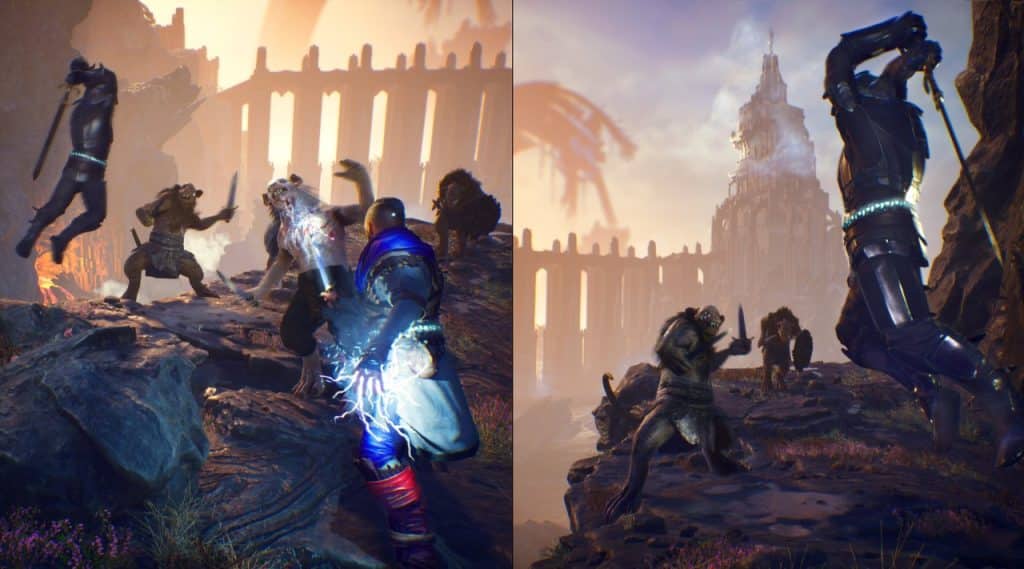
It’s a real shame because there are good ideas found within The Last Oricru. For example, the game boasts cooperative multiplayer, available in both online and split-screen local play. That is an inclusion I would not have expected from a smaller budget title, especially given its heavy narrative focus. Bringing a friend along for the ride can elevate the game a bit, but it’s mostly in the way you would share a joke with a friend and laugh together.
The Last Oricru Review Verdict
The Last Oricru : The Last Oricru is a compelling promise followed by a disheartening delivery. The player choice is undoubtedly the highlight of the experience, allowing players to take Silver through various ever-changing situations based on their actions and words. In theory, it promotes additional playthroughs to see it all. But the truth is that the crushing weight of the game's other dreary facets snuff out the little positive to be found, making for an experience that can comfortably be skipped, especially in its current form. – Joshua
[Editor’s Note: The Last Oricru was reviewed on PC and a copy was provided to us for review purposes]

